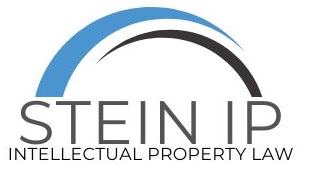- HOME
- > Blog Main Page
- > A European Lesson for the U.S. Copyright Law: How to Handle Digital Piracy
A European Lesson for the U.S. Copyright Law: How to Handle Digital Piracy
By Shuyu Wang
The Senate Judicial Committee IP Subcommittee kicked off a year-long review of the Digital Millennium Copyright Act (“DMCA”)[1], aiming to examine whether the DMCA is adequate to address digital copyright infringement given the rapid development of Internet technology. Senator Thom Tillis led the second of the series hearings on March 10, 2020, titled “Copyright Law in Foreign Jurisdictions: How are other countries handling digital piracy?”.[2] This hearing was aimed at examining several foreign approaches of combating online copyright piracy and assigning intermediate liability to Internet service providers (“ISPs”), and whether the DMCA needed to be updated to better serve its purpose. 
Has DMCA Been Outdated?
When first enacted, the DMCA sought a balance of the growth of Internet technology and the thriving of creative industries. The balance has been maintained for a time by exempting ISPs from the liability of their users uploading copyrighted content to their online platforms.[3] Such safe harbors and the accompanying notice-and-takedown system created by Section 512 of the DMCA have become the international norm for online copyright enforcement. However, this mechanism seems to fall short to keep the balance as the technology evolves faster than anyone could ever imagine.[4]
Europe Provides an Insightful yet Impractical Lesson
In the past few years, one of the most important global updates in copyright law is the European Union Digital Single Market Directive (“the EU Directive”). The 2019 Directive pushes heavily towards the harm-prevention end of copyright law.[5] The main focus of the hearing was Article 17 of the EU Directive, which establishes a strict liability regime for for-profit “online content-sharing service providers.”[6] These ISPs are directly liable for their users’ sharing copyright infringing content on their platforms unless they have made the best efforts to obtain licenses form right holders.[7]
However, many panelists shared a view that Article 17 is not a good model for the US to follow. Professor Pamela Samuelson of the University of California Berkeley School of Law pointed out that Article 17 is internally contradictory and ambiguous. For instance, Article 17 implicitly requires that online content sites must adopt automated content recognition technologies to prevent infringing uploads, while not limiting the legitimate uses of copyrighted works. But automated tools often lack the ability to understand the context of a use to determine whether it is lawful.[8] A European lawmaker, Julia Reda, a former member of the Pirate Party Germany in the European Parliament, said that currently no technology can accomplish what Article 17 requires. Automated algorithms may not be able to distinguish infringing content from legal uses such as parody or education fair use. As a result, ISPs may be caught up in between deleting too much or too little.[9]
Moreover, Professor Daphne Keller of Stanford University sounded the alert to the distorting impact of Article 17 on the ISPs landscape. Article 17 places great burden on ISPs to develop licensing and on-going monitoring schemes that may not be tolerable for small businesses. Eventually, smaller-sized ISPs may be out-competed due to the demanding cost of legal compliance. Thus, the impact of Article 17 on the ISPs’ landscape in Europe remains to be observed.[10]
Besides, Reda highlighted another difference between the US and European markets that further deters the US from adopting the Article 17 approach. She pointed out that Article 17 is designed to encourage collective bargaining for blanket licensing, which is common in Europe but not so much in the US. Given that there are millions of potential right holders out there, it is impractical for ISPs to know from whom to obtain licenses, and the cost of negotiation may further entrench the market power of the largest platforms.[11]
Site Blocking May Provide a More Effective Enforcement Mechanism
During the Senate hearing, Senator Tillis also heard discussion as to the effectiveness of site blocking. Site blocking has been adopted in a number of countries as a no-fault injunctive relief against ISPs to disable access to pirate websites. A panelist from the industry, Stan McCoy of the Motion Picture Association, advocated the practice of site blocking as an effective mechanism to handle online privacy.[12] As shown in studies in the UK and Australia, the consistent use of site blocking decreases overall piracy traffic and increases traffic to legitimate content sources.[13]
Yet site blocking may not be a one-size-fits-all solution. Matt Schruers from the Computer and Communications Industry Association (CCIA) emphasized that the prevention of copyright piracy is not just enforcing against infringers. Policies should aim at promoting a well-functioning legal marketplace to boost the demand for lawful content. For instance, innovative new digital services have played a critical role in reducing piracy, since it improves the market conditions to facilitate lawful digital delivery of content.[14]
The U.S. Copyright Office Calls for Refining DMCA
On May 21, the United States Copyright Office released a report that echoes with the panel discussions at the Senate IP Subcommittee. The report on Section 512 of the Copyright Act underscores several requirements that have been misused by courts to address the intermediate liability of ISPs for their users’ infringing conduct.
One key issue is the eligibility for safe harbor exemption for ISPs. The U.S. Copyright Office pointed out that courts have broadly construed the scope of Section 512 safe harbor, which “tilted askew” Congress’ originally intended balance.[15] The report warns that a series of court rulings have stretched Section 512 to cover some services that are merely “related” to user uploads, further eliminating the chance of liability for ISPs. On the other hand, the DMCA has placed an outsized burden on right holders to chase after each infringing upload and to file takedown notices. That said, the report does not endorse a new notice-and-takedown system that would require ISPs to permanently ban certain content at the request of the entertainment industry.[16]
Instead, the Office turned to address another issue that has been mishandled by courts—the knowledge requirement for taking down infringing content. The report calls into question rulings that “set too high a bar” for copyright owners to enforce. For example, the report examines the “red flag knowledge” interpretation by the Second Circuit in Viacom v. YouTube.[17] The Viacom court determined that a mere red flag, without the knowledge or awareness of “specific instances of infringement,” does not exempt an ISP from the Section 512 safe harbors.[18] The Office wrote that such a narrow interpretation minimizes an ISP’s duty to act upon online infringement, and it called for a reasonableness standard that accounts for each ISP’s relevant characteristics regarding the knowledge requirement.[19]
While the panelists at the Senate hearing and the Copyright Office report reiterated potential solutions such as site blocking and stronger FTA provisions, they all called for further evaluation of the enforcement mechanisms adopted in other countries. On May 29, The Subcommittee sent a letter to the Copyright Office to get additional views as to how the Office would design section 512 from scratch. Meanwhile, the Subcommittee held the third hearing (a separate post on this hearing to follow) of reviewing DMCA on June 2, which examined the current effectiveness of the DMCA notice-and-takedown system in the 21st century. It is interesting to see how the DMCA review will proceed in the future.
[1] When enacting the DMCA, Congress amended 17 U.S.C. §§ 101, 104, 104A, 108, 132, 114, 117, and 701, and created 17 U.S.C. §§ 512, 1201–1205, 1301–1332, and 28 U.S.C. § 4001. The Senate hearing mainly focused on Section 512 and Section 1201. See 17 U.S.C §§ 512, 1201.
[2] Rebecca Tapscott & Eileen McDermott, Senate IP Subcommittee Examines Foreign Approaches to Digital Piracy in Second Hearing on U.S. Copyright Reform, IPWatchdog (March 11, 2020), https://www.ipwatchdog.com/2020/03/11/senate-ip-subcommittee-examines-foreign-approaches-to-digital-piracy-in-second-hearing-on-u-s-copyright-reform/id=119779/.
[3] Sen. Thom Tillis, Getting Back to Basics on the Digital Millennium Copyright Act, The Hill (Dec. 17, 2019 2:30 PM), https://thehill.com/blogs/congress-blog/technology/474918-getting-back-to-basics-on-the-digital-millennium-copyright-act?rnd=1576605068&fbclid=IwAR1MqLwblDXmFF0Dnq5MUsKThCEpTSrtoNXrkx20Cw-D8RLVAhBXxwu7Ai4.
[4] Copyright Law in Foreign Jurisdictions: How are other countries handling digital piracy? Hearing before the Senate Judiciary Committee Subcommittee on Intellectual Property, 116th Cong. (March 10, 2020) (Statement of Professor Justin Hughes at 5), https://www.judiciary.senate.gov/imo/media/doc/Hughes%20Testimony.pdf.
[5] Copyright Law in Foreign Jurisdictions: How are other countries handling digital piracy? Hearing before the Senate Judiciary Committee Subcommittee on Intellectual Property, 116th Cong. (March 10, 2020) (Statement of Professor Daphne Keller at 3) [hereinafter Keller Statement], https://www.judiciary.senate.gov/imo/media/doc/Keller%20Testimony.pdf.
[6] Copyright Law in Foreign Jurisdictions: How are other countries handling digital piracy? Hearing before the Senate Judiciary Committee Subcommittee on Intellectual Property, 116th Cong. (March 10, 2020) (Statement of Professor Pamela Samuelson at 8) [hereinafter Samuelson Statement], https://www.judiciary.senate.gov/imo/media/doc/Samuelson%20Testimony.pdf.
[7] Id.
[8] Samuelson Statement at 12.
[9] Tapscott & McDermott, see supra note 1.
[10] Keller Statement at 11.
[11] Copyright Law in Foreign Jurisdictions: How are other countries handling digital piracy? Hearing before the Senate Judiciary Committee Subcommittee on Intellectual Property, 116th Cong. (March 10, 2020) (Statement of Julia Reda at 5), https://www.judiciary.senate.gov/download/reda-testimony.
[12] Copyright Law in Foreign Jurisdictions: How are other countries handling digital piracy? Hearing before the Senate Judiciary Committee Subcommittee on Intellectual Property, 116th Cong. (March 10, 2020) (Statement of Stan McCoy at 4) [hereinafter McCoy Statement], https://www.judiciary.senate.gov/imo/media/doc/McCoy%20Testimony.pdf.
[13] McCoy Statement at 4-5.
[14] Copyright Law in Foreign Jurisdictions: How are other countries handling digital piracy? Hearing before the Senate Judiciary Committee Subcommittee on Intellectual Property, 116th Cong. (March 10, 2020) (Statement of Matt Schruers at 3), https://www.judiciary.senate.gov/imo/media/doc/Schruers%20Testimony.pdf.
[15] Bill Donahue, Copyright Office Says DMCA Has 'Tilted Askew', Law360 (May 21, 2020, 12:55PM), https://www-law360-com.gwlaw.idm.oclc.org/articles/1275893/copyright-office-says-dmca-has-tilted-askew-.
[16] Id.
[17] Viacom Int’l, Inc. v. YouTube, Inc., 676 F.3d 19 (2d Cir. 2012).
[18] United States Copyright Office, Section 512 of Title 17, A Report of the Register of Copyrights at 124 (May 21, 2020) (available at: https://www.copyright.gov/policy/section512/section-512-full-report.pdf).
[19] Id. at 125.

TAGS:
RECENT POSTS
